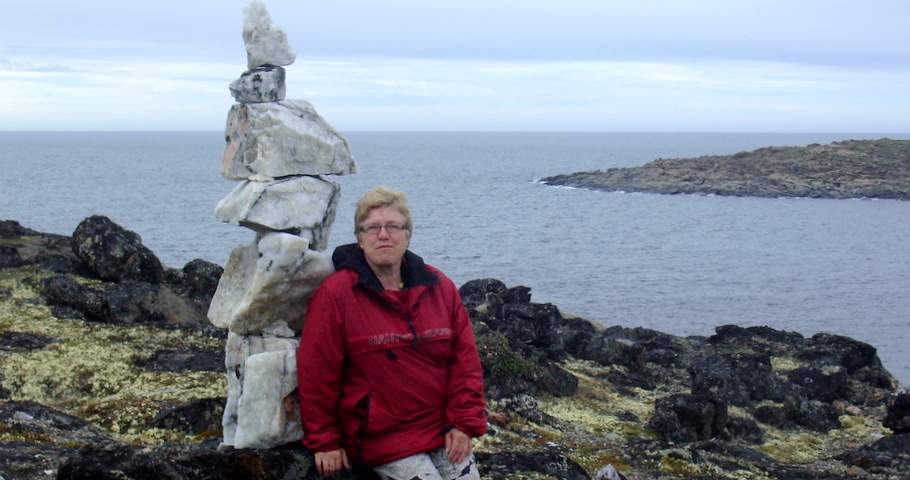No Child Should Take the Long Way Home is a grassroot initiative to help children in need of loving care, of a protective and stable environment to meet their basic needs for protection, shelter, and education and to reinforce family unity.
Canada is the ninth richest country in the world. Yet poverty bears a face in Canada. Increased economic and social inequalities cannot quite mask the reality of poverty, social exclusion, and discrimination of certain vulnerable populations, such as the Inuit and many indigenous people. Children and women bear the brunt of our policies. With poverty come risk factors that can affect the rest of their lives.
The demands of modern society
The demands of modern society are noticeable in the education of Inuit and Indigenous children more than anywhere else. As Inuit parents try to come to terms with our values about the education of their children, changes in childrearing practices are becoming apparent. Fortunately, many young women still choose to wear their babies in the amauti, providing emotional and physical comfort that cannot be provided by the stroller.Daycare, kindergardens, and primary schools have become features of everyday life
The child-rearing practices are changing rapidly in Nunavik communities and rural Indigenous communities just as anywhere in the South. Daycare, kindergardens, and primary schools have become features of the everyday life of these families. Women here as well have lost what was their indispensable central role in the family - their intimate and very personal relationship with their children.However, the pace of life is slower than in the South and people live a more traditional way. No McDonald, not even a restaurant for coffee: people tend to visit more to fuel their social needs. Most people hunt and fish to survive and it is not unusual that whole families go camping in nature all summer. Pickup trucks, snowmobiles, ATVs, and outboards have replaced dogsleds and kayaks.
Feelings of worthlessness and frustration
Women are more likely to suffer from idleness than men. The men, deprived of their traditional role as a supplier of meat, feel powerless and useless. They seek relief from feelings of worthlessness and frustration in the temporary illusion of power induced by alcohol, which in turn triggers repressed feelings of hostility, aggression, and violence. Sometimes remorse opens the door to suicidal behavior. Women are favored in the workforce.The family, as a social institution, is disintegrating
Since the only social institution of major importance in the life of the Inuit, the family, is disintegrating, many children find themselves deprived physically and emotionally from childhood by the force of circumstances and, without direction and full of anxiety, they eventually imitate the actions of their parents.Whole families should be involved
The solutions to addressing family violence should not only be the work of appropriate services and institutions: whole families should be involved. Although the institutions and services are important elements in the control effort against domestic violence, it takes much more to generate and sustain real change. Most families and communities affected by domestic violence must be part of the discussion because they know all too well how violence affects their daily life, their environment, and their relationships.Their ability to be satisfied with the little they have access to expensive food, an education that takes little account of their culture, unpromising jobs, overcrowded conditions prevent them from moving forward, to achieve, to flourish and progress.
Children are not able to exercise their own rights
In practice, children cannot claim their rights are protected by the Charter of Rights and Freedoms.The children taken from families considered vulnerable for protective purposes often end up in communities that are not theirs. Each child has rights under the Charter, but then there is the exercise of these rights. Children are not able to exercise their own rights. Moreover, when their rights are in conflict with those of adults, it is adults who earn. The Convention on the Rights of the Child was signed in 1989. Twenty-five years later, where are we at?
The current reputation of Canada is overrated
In days gone by, Canada had acquired a leading reputation in the field of human rights. Moreover, since the Second World War, he had played a leading role in developing and promoting new initiatives on human rights. And yet, for the past 10 years, several witnesses noted that the current reputation of Canada is overrated considering what he has actually accomplished in this regard.Canada clearly is lacking in its duty to protect its most vulnerable children
The Chart is 40 years old this year. But this could have been said yesterday. In 2013, Billie Schibler, Manitoba children advocate, also stressed the importance of protecting children's rights in the country before doing it abroad. More concerned with the lessons to give to others without looking at its own performance, Canada clearly is lacking in its duty to protect its most vulnerable members, to preserve its most precious and most expensive resource, our children.These children are taken from families considered vulnerable for protective purposes, often end up in communities that are not theirs. Each child has rights under the Charter, but then there is the exercise of these rights. Children are not able to exercise their own rights. Moreover, when their rights are in conflict with those of adults, it is adults who earn.








No comments:
Post a Comment